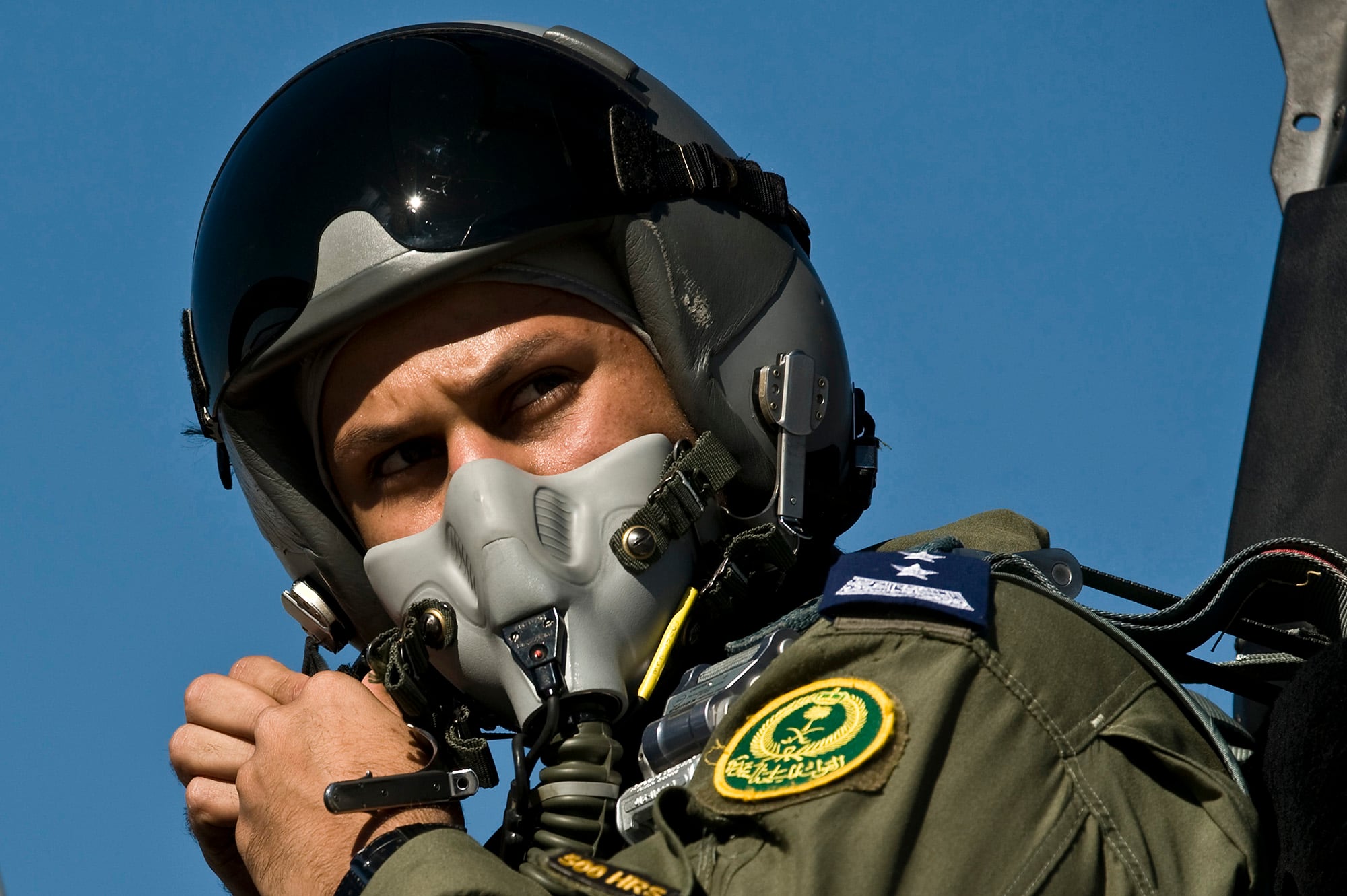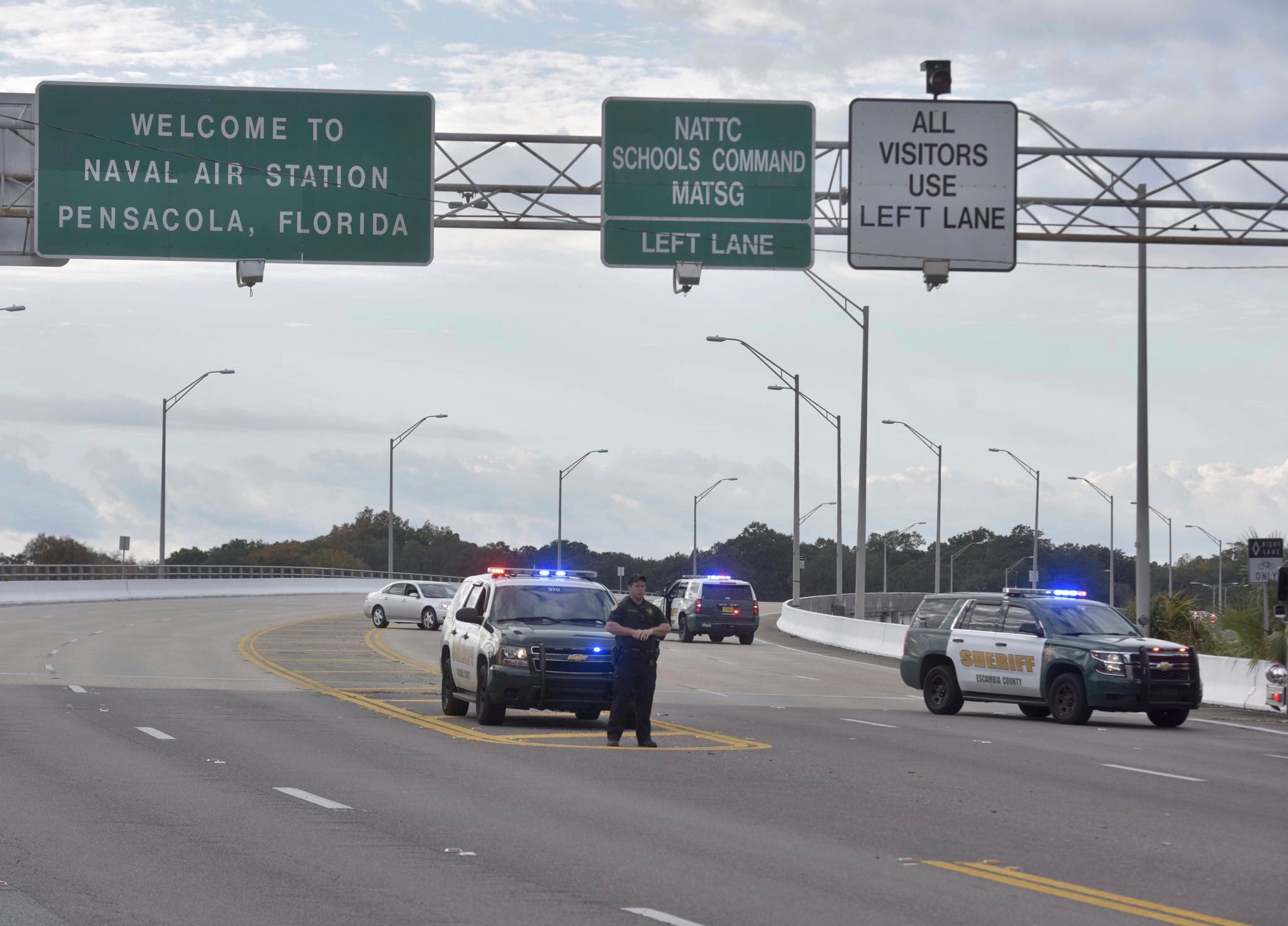NAVAL AIR STATION PENSACOLA, Fla. — Six weeks after a Saudi trainee killed three sailors in a shooting spree that has since been termed a terrorist attack, the community around Naval Air Station Pensacola — including 140 Saudi students still on base — is trying to adjust to normal life
And during a visit to the base Wednesday, Secretary of Defense Mark Esper attempted to thread a careful line: expressing support and understanding for those impacted, while urging that the incident not lead to cutting off military training for allies and partners.
Speaking with Florida Gov. Ron DeSantis at the base, Esper said “the United States is safer when we have allies and partners,” something DeSantis, who previously said Saudi Arabia will “owe a debt” following the shooting, supported — up to a point.
“Look, there’s a great thing with relationships we’ve built throughout the world, with different countries. We’ve got some incredible allies, that’s obviously a good thing,” DeSantis said. “At the same time, though, we cannot be bringing people over here who want to do things like this with our country. So the fact [the Defense Department is] taking action on this is very, very significant, and hopefully we get the ducks in the row on that going forward.”
Capt. Tim “Lucky” Kinsella Jr., the commanding officer at the base, echoed those sentiments.
“I know the value of the interaction of foreign militaries and with our allies. This is an incredibly important thing that we do. Whether that’s my opinion or not, it’s fact. It’s important,” he said. "We cannot survive in this world alone. It’s a multilateral world, not a unilateral world.”
RELATED

Kinsella said the community reaction for the remaining Saudi students has been largely positive, and that "people here recognize that [the Saudis] are victims here as well… these are young kids. Now they feel there is extra scrutiny on them, just because they come from a different place.”
Still, Kinsella acknowledged “natural apprehension” among those living on base, saying he and his leadership team have conducted 25 town halls since the attack in order to hear concerns from residents and try to address them.
On the plane heading down from Washington, Esper also pushed back at the idea that Saudi students should only be allowed to train in their home country, saying “that’s something that we will discuss with the commander when we get down there. Right now, that’s not under active consideration.” He also used a pair of media availabilites on base to repeatedly stress the importance of continuing to train and work with partners.
A return to normalcy?
After the Dec. 6 shooting by the Saudi flight officer trainee at Pensacola, killing three service members and wounding eight others, the Defense Department ordered a security review to sweep not only international students, but to look for holes in a host of security regulations.
In a memo dated Jan. 17, Deputy Secretary of Defense David Norquist ordered that non-classroom training can resume once the military services have met certain conditions, including implementing a prohibition on the possession — on or off U.S. military property — of privately owned firearms and ammunition by international military students and their families.
RELATED

The military services must also ensure that all international military students are under continuous monitoring for potentially disqualifying behavior. The continuous monitoring, which was ordered last week by Esper, is intended to allow U.S. officials to pick up on signs of radicalization or other problematic behavior that might not have been apparent when the student entered the training program.
While at the base, Esper said that other steps are being considered, potentially to include increased mobile or stationary patrols in order to deliver a “greater sense of confidence” to residents of the base.
On the plane ahead of the visit, Esper said the purpose of the trip is largely to “go down there and take a sense — the pulse of the community, the command, how people are feeling like. So that’s why I wanted to come down here, to get that granularity.”
As part of his visit, Esper met with a number of first responders who were on the scene during the shooting, including MA3 David Link Jr., part of the base security forces team. Link told reporters that he was in the process of issuing a speeding ticket when he got the call about an active shooter, before jumping in the car and rushing to the scene, becoming one of the first to arrive.
Link said that while life has returned to normal on the base since the attack, the community remains shocked by the incident.
“I know, when I got home, it was kind of like — immediate relief. I got to see my wife, my daughter. To know I got out of that situation with my life, I’m completely healthy still, I wasn’t injured or anything, so to be able to go home and see my family, that was pretty great,” Link said. "But for the following days, it was — it was heartbreaking, for the three that didn’t make it, that didn’t get to go home to see their families. That’s kind of where my mind was for the following few days.
Aaron Mehta was deputy editor and senior Pentagon correspondent for Defense News, covering policy, strategy and acquisition at the highest levels of the Defense Department and its international partners.




